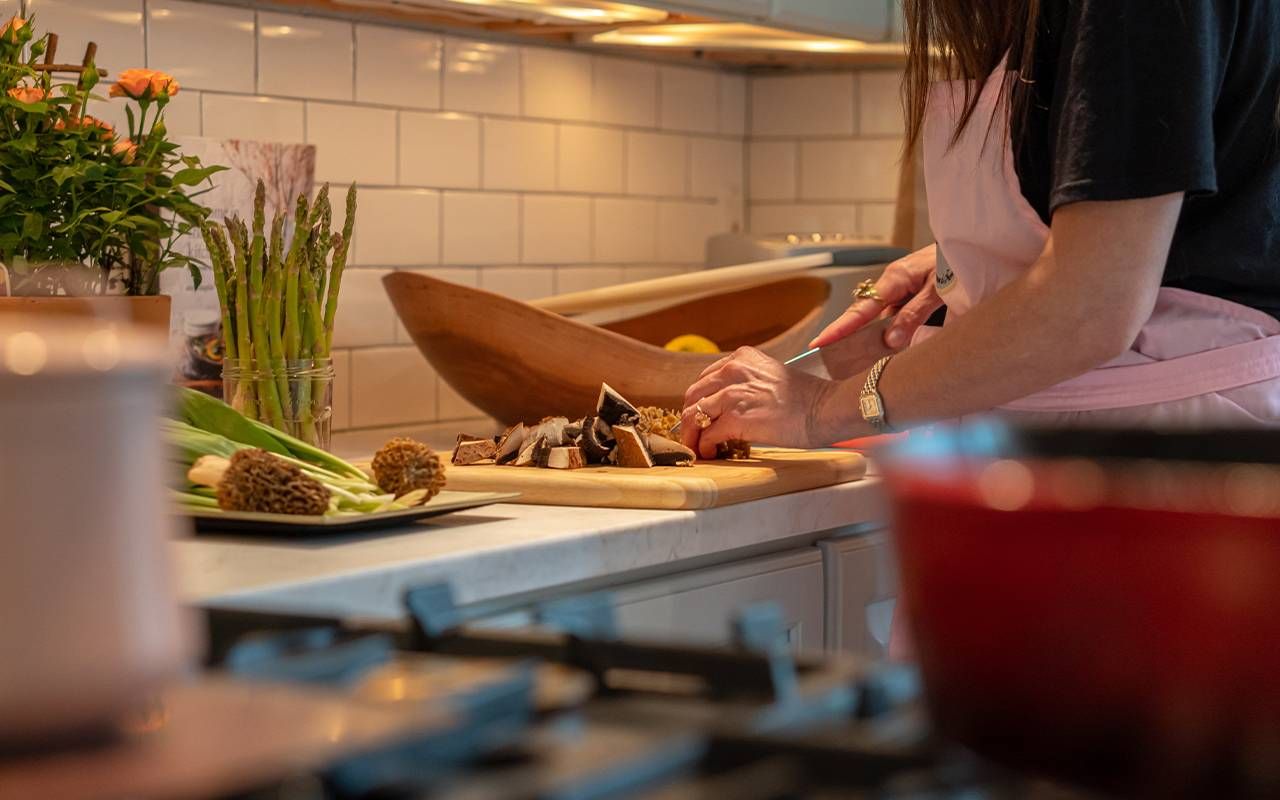What Does Your Gut Tell You About Your Health?
Small but mighty microorganisms are key to gut health and overall well-being
What's the difference between prebiotics and probiotics, and why do we need to have them? It cannot be obvious. So let's look at what we're feeding and why we are feeding it.

"We have beneficial gut bacteria; we also have bacteria that are not so beneficial."
Your digestive tract is home to trillions (yes, trillions) of tiny microorganisms, most of them bacteria. By encouraging the growth of healthy, beneficial species of bacteria and reducing the number of harmful bacteria, you can balance that microbiome and improve your overall health.
"We have beneficial gut bacteria; we also have bacteria that are not so beneficial. The key is to keep the ratio of good gut bacteria overpowering the not-so-good, and that depends on what we're eating," says Christine Bishara, MD, integrative wellness and weight loss physician specializing in gut health and founder of From Within Medical in New York City.
How Does It All Work?
Gut health is shorthand for a healthy microbiome, says William Li, physician, scientist, and medical director of The Angiogenesis Foundation, and author of "Eat To Beat Disease: The New Science of How Your Body Can Heal Itself." And "it influences our metabolism, our ability to heal, and our immune system alike."
Li continues, "When the microbiome functions harmoniously with the right type and proportion of bacteria, those bodily systems are healthy. Conversely, when the microbiome is not working, with a deficit of beneficial bacteria or an excess of harmful bacteria, this state is known as 'dysbiosis.'"
"Increasingly, the medical community has come to recognize the importance of gut health for overall health."
You send new bacteria to your digestive system when you eat, feeding the ones already there or helping those bacteria keep your gut in good condition. You do that through probiotics, prebiotics, and post-biotics.
Probiotics are healthy bacteria in your digestive system and can be found in foods or supplements. "The probiotics are like factory workers, and those factory workers have to produce a by-product," says Bishara. "I tell my patients to imagine that the probiotics are the gut bacteria residing in your colon."
"Post-biotics are interesting and important. These are the beneficial substances that healthy bacteria naturally produce in the body."
But those factory workers must eat and stay healthy to produce what their bodies need. Our bodies can't digest fibers, but those fibers are precisely what all those good probiotics need to keep going. They obtain healthy nutrients, vitamins and other benefits from fibrous plant-based foods known as prebiotics.
If you offer great meals for the probiotic factory workers, they reward you by making great by-products or post-biotics.
"Post-biotics are interesting and important. These are the beneficial substances that healthy bacteria naturally produce in the body," says Li.
Short-chain fatty acids are just one of the types of post-biotics that have several important tasks in our bodies. "Some of them will keep the gut lining healthy by keeping the lining strong and not allowing anything to leak out of the gut," says Bishara.
"Some short-chain fatty acids send signals to our brain to shut off our appetite center, and others produce neurotransmitters like serotonin," she adds.
Managing Gut Health
"As you get older, your gut health is more important than ever since you need your healthy bacteria to continue working on your behalf," says Li.
"Older people are often given antibiotics for various ailments, which can cause dysbiosis — an even more important reason to keep on top of your gut health. After being treated with antibiotics for an infection, it's important to restore gut health by eating prebiotic and probiotic foods."
Before incorporating supplements into a daily routine, Bishara recommends looking at your diet first. Creating a food plan similar to the Mediterranean diet, with approximately 70% plant-based foods and a small amount of animal protein can begin the path to gut health.
"It's always good to supplement, especially if you're not eating many fermented and plant-based foods. Probiotics are like the cherry on top."
Further, try to stay away from processed foods and foods that do not have any fiber. These foods stay in the colon longer. "Eating foods that stay in the gut, like refined carbohydrates and processed foods, increases the chance of something like an agar setting or mold growth," Bishara explains.
"You'll have bacterial overgrowth inside your colon, and that's not necessarily good. Once it starts to overgrow, the bad bacteria begin to build colonies, and they start releasing toxins."
The Relationship of Gut Health to COVID
Those toxins can lower your immune defenses, and it is widely believed that lower immunity states can make you more vulnerable to the COVID virus. In addition, early studies during the pandemic suggested that there are microbiome differences in people who were more resistant to COVID versus those who developed the disease.
"As you get older, your gut health is more important than ever since you need your healthy bacteria to continue working on your behalf."
Bishara's research during the early days of COVID showed that younger patients, particularly children, were not presenting with extreme illness as many older persons were.
"If you look at the composition of gut bacteria (of children), it's very different from adults. Their digestive system typically has a substantial percentage of one specific bacteria called Bifidobacterium (about 70 to 80%). The levels start to decline as we age," says Bishara.
"However, people who eat a predominantly Mediterranean diet have higher Bifidobacterium levels than other people their age. It's a potent immune regulator and works on the same pathways that COVID seems to affect."
Bishara found during the time of pre-vaccination that giving high doses of zinc, Vitamin D, and probiotics to patients was very helpful. So today, the Front Line COVID-19 Critical Care Alliance has added probiotics with Bifidobacterium into their protocol for patients presenting to ICU with COVID.
Probiotic-Rich Foods to Include in Your Diet
Plan meals that focus on a majority of plant-based foods with fiber are a great way to boost your probiotic intake, including:
- Broccoli
- Kale
- Kiwi
- Pears
- Mushrooms
- Artichokes
- Garlic
- Asparagus
- Fermented foods with probiotics, such as kimchi, sauerkraut, yogurt, pickles, miso and kefir
- Cheese (but watch out for high sodium and saturated fat)
Bishara suggests eating pickled or fermented foods at least three to four times a week, along with plant-based prebiotics. "It's always good to supplement, especially if you're not eating a lot of fermented and plant-based foods," she says.
In addition to diet, exercise can also help with gut health. For example, a 15 to 20-minute walk after eating aids gut health and longevity, says Bishara, adding that doing this can also reduce the likelihood of developing diabetes and heart disease.
Li adds that intermittent fasting can also help improve your gut microbiome. "The most important principles are useful for gut health: don't eat after dinnertime (no midnight snacking), and don't eat immediately after getting up in the morning."
"The more time your body functions without food, the better it fine-tunes its health systems, including your microbiome," he concludes.


